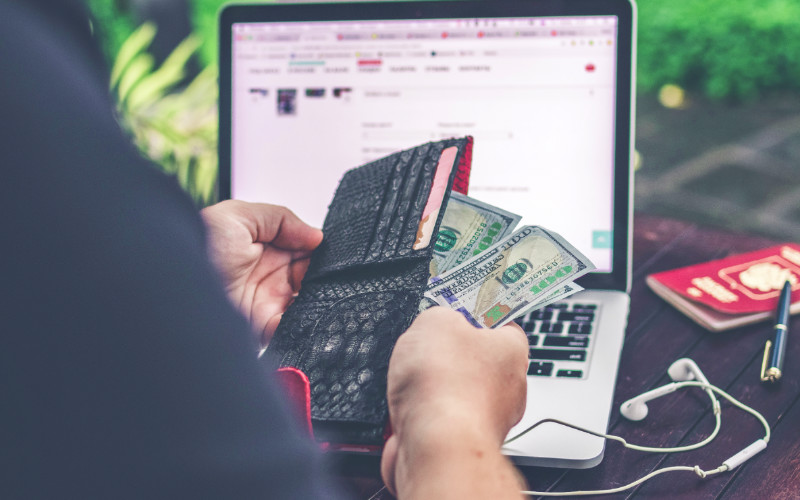The longer you travel the greater the chance you’ll lose either your money or your bank cards or, as happened to me in Brazil, both.

Preparation, preparation, preparation…
Building a robust financial system before embarking into the great wide world can help you avoid this almost inevitable nightmare of long-term travel and it’s so much easier doing all this beforehand in your home country. I’m writing from the perspective of UK citizens travelling longer than a couple of weeks since you can more easily deal with lost cards when you get back.
1. Have two bank accounts. That’s right, at least two and initiate a financial transfer in your online banking to link them in all directions so that you can move money easily without cards. You’ll likely need your debit card for Pin Sentry security so you won’t be able to do it if you lose your cards. Barclays has an app that you can use as a pin sentry instead of your card. Smile bank has live chat. Both features were useful for me in my emergency.
2. Open a TransferWise or Wirex account and order their debit card. It’s the cheapest way for a traveller to get foreign currency and pay for goods and services abroad. The TransferWise debit card is connected to the Borderless account, giving you access to 28 different currencies without the need to move money around. Click here to open a new tab and open an account. The thing I like about Wirex is it can be funded via cryptocurrency and they also can issue a virtual and physical debit card.
3. Have two or three credit cards. Often these carry insurance protection for travellers but make sure you pay off the balance every month and check fees at ATMs. Click here to check out the best deal on Credit Cards for travel.
4. If you have an abysmal credit score or no fixed abode and can’t get a credit card then get a couple of prepaid cards and make sure you can fund them from your bank accounts as soon as you get them. Click here for the best deal on Prepaid Cards for travel.
5. Once you have all these together, ensure you can log on to all their websites and link any bank accounts to them. If you have Paypal then be sure to link a bank account with that too.
6. Photocopy the ID page of your passport. Keep it in your wallet to use for ID instead of your real passport. Keep your passport somewhere safe and disturb it as little as possible.
7. Include a note of your email address and telephone number in the wallet. Some way someone can get in touch with you if they find it. Develop a habit of including your hotel name wherever you go.
8. Download ClearScanner for Android from Google Play for your phone. Apple will have something similar. Scan all your important documents together with back and front of your Bank Cards. Then either back up your phone or copy the scans to Dropbox or Google drive.
Out In The World.
1. While travelling, split your cards up and keep them in at least two different locations. Don’t keep all your eggs in one basket, as the saying goes.
2. Get a money belt and keep a card and cash in that when you are out and about. Pickpockets are pretty skilful in busy marketplaces.
3. For the paranoid, carry a dummy wallet. Something you can happily hand over if ever you encounter a robber. I carried one for a day but didn’t like the extra load in my pocket.
Finally, carrying too much cash or too little is a personal thing. Too little can leave you stranded far from an ATM. Too much can make you feel nervous and paranoid. Carry as much as you wouldn’t mind too much losing.
If you’ve already lost your money abroad, click here.



Recent Comments